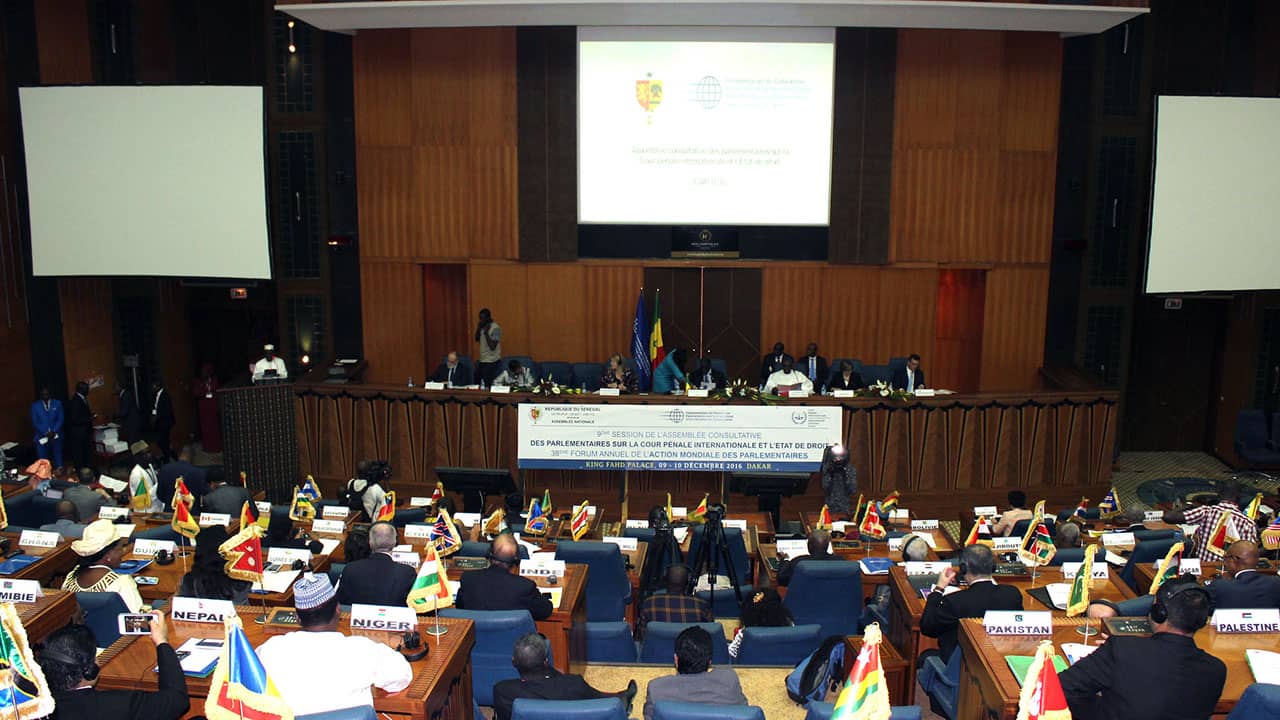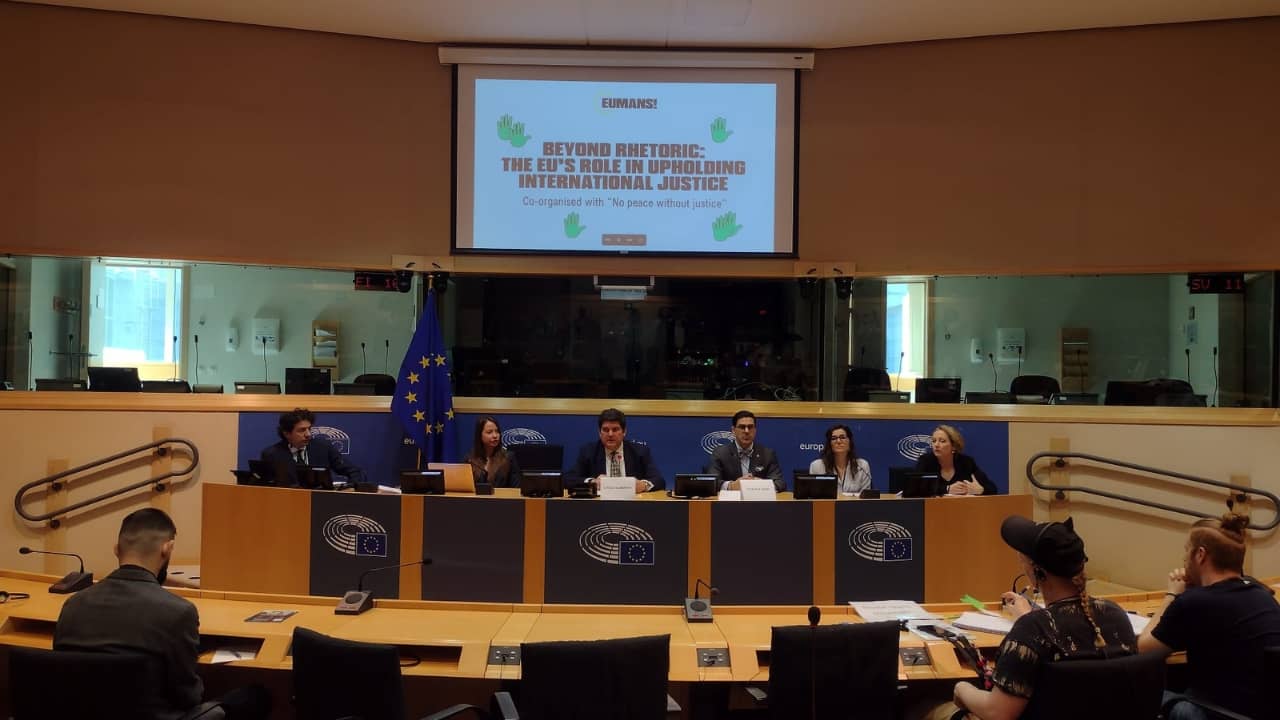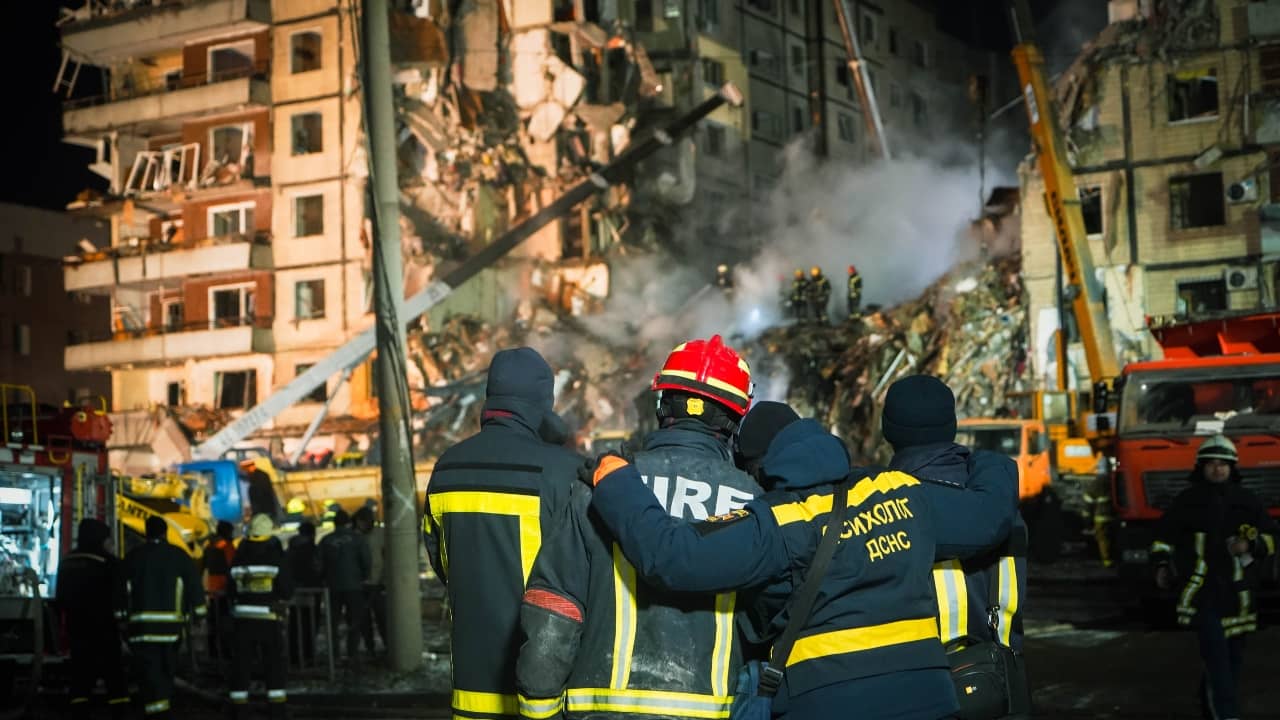
Dakar, Senegal, 13 December 2016 – On 9 and 10 December 2016, on the occasion of International Human Rights Day, the National Assembly of Senegal hosted the 9th Consultative Assembly of Parliamentarians for the International Criminal Court and the Rule of Law (CAP - ICC) and the 38th Annual Forum of Parliamentarians for Global Action (PGA). This event is the only global gathering of Legislators aimed at assessing the needs of the international community and acting to effectively prevent atrocities and the most serious international crimes: genocide, crimes against humanity, war crimes and the crime of aggression.
At a time when three African States have formally started the process of withdrawal from the Rome Statute, over 100 Parliamentarians from 51 countries of all regions of the world affirmed strong support for the Rome Statute system against impunity. The high-level panellists included the President of the Republic of Senegal, H.E. Macky Sall (who delivered his message through the Prime Minister of Senegal, Mr. Mohammed Dionne), the Prosecutor of the International Criminal Court Ms. Fatou Bensouda, the Minister of Justice and Keeper of the Seals of Senegal, H.E. Sidiki Kaba, the President of the ICC, Judge Silvia Fernandez de Gurmendi and high-level experts from civil society, the judiciary, legal professions and academia.
Leading Legislators from several non - party States to the Rome Statute pledged to launch a national campaign for accession to the Rome Statute in Guinea Bissau and to continue and reinforce the PGA action for the ICC ratification in Togo, Morocco, Iraq, Ukraine and Malaysia. The leading PGA Member from Namibia expressed support for the ICC and urged all States to address existing criticisms and concerns on the ICC’s functioning, while remaining within the Court’s system- hence rejecting the idea of withdrawal from the treaty.
Legislators from many States Parties and a non – party State, Zimbabwe, pledged to launch or intensify efforts to domesticate the Rome Statute provisions and standards into their national laws, so to ensure effective compliance with the duty to cooperate with the Court and to give effect to the principle of complementarity. In this respect, Parliamentarians from DRC reported on the historic adoption of comprehensive legislation to implement the Rome Statute, while Parliamentarians from Argentina, Chile, Costa Rica, Dominican Republic, Guinea, Ecuador, El Salvador, Mali, Morocco, Sierra Leone, Tunisia and Ukraine illustrated legislative initiatives or political efforts to advance domestic implementation of the Rome Statute and the Kampala Amendments as well as to promote ad hoc voluntary agreements on cooperation with the Court in their countries.
The Consultative Assembly ended with an adoption of Outcome Resolution and Dakar Plan of Action to Prevent and End Impunity for Mass-Atrocity Crimes, where the Parliamentarians expressed their appreciation to the work conducted by the ICC and call on their governments to achieve the removal of barriers towards ratification of the Rome Statute and Kampala Amendments as well on adoption of implementing legislation on cooperation with the Court and adoption of domestic legislation that incorporates the definitions of the crimes and general principles under the Rome Statute.
Selected Statements:
In her remarks, the President of the ICC H.E. Judge Silvia Fernandez de Gurmendi, forcefully stated that:
The global movement for justice, human rights and the rule of law is going through turbulent times. There have been important steps forward but we are also facing very serious challenges. It is essential that we protect the gains that we have made over the past decades through the continuing efforts at national, regional as well as international levels. As legislators, as elected representatives of the people, you have the power to support and strengthen international criminal justice in very concrete ways. H.E. Judge Silvia Fernandez de Gurmendi
Ms. Margarita Stolbizer (Argentina), President of PGA:
Senegal was the first country to ratify the Rome Statute in 1999. We are honored to have been graciously hosted by the Parliament of Senegal, in order to acknowledge that many of the parliamentarians represent conflict-torn regions where the International Criminal Court is investigating or prosecuting crimes. Margarita Stolbizer
Mr. Kula Segaran, MP, Secretary of the PGA Malaysia National Group, Member of the PGA Board:
Many mass atrocities have been committed in the past, and because we have a lack of membership in the ICC, those atrocities are still being committed, often without consequences... I have a vision, that 10 years from now, many more victims will have received reparations, rehabilitation and restitutions. That the center of all our work is the protection of victims and the deterrence of international crimes and human rights violations. That people know, we are one humanity, and each of us, cares about the well-being of every other human being. That we have reached true universality of the ICC System, and therefore effective national legislation, coupled with universal ratification, will protect our most vulnerable populations and fight impunity for most serious crimes. Kula Segaran, MP
Ms. Barbara Lochbihler, MEP (Germany), Convenor of the PGA ILHR Program and Vice Chair of the Human Rights Subcommittee of the European Parliament:
The Rome Statute System is a community, where the respect for human rights, justice and the rule of law plays a pivotal role. It enables the ICC to intervene when the competent national institutions are not able or willing to fulfil their duty to bring perpetrators of the most serious international crimes to justice. For this reason, I call upon all States that have not yet done so, to demonstrate their commitment for justice and to proceed with the ratification and implementation of the Rome Statute. And to those that have decided to withdraw, I suggest to reconsider their decision. Withdrawal from the Rome Statute represents a step backwards in the protection of human rights, the fight against impunity and accountability for the most serious crimes. Barbara Lochbihler




